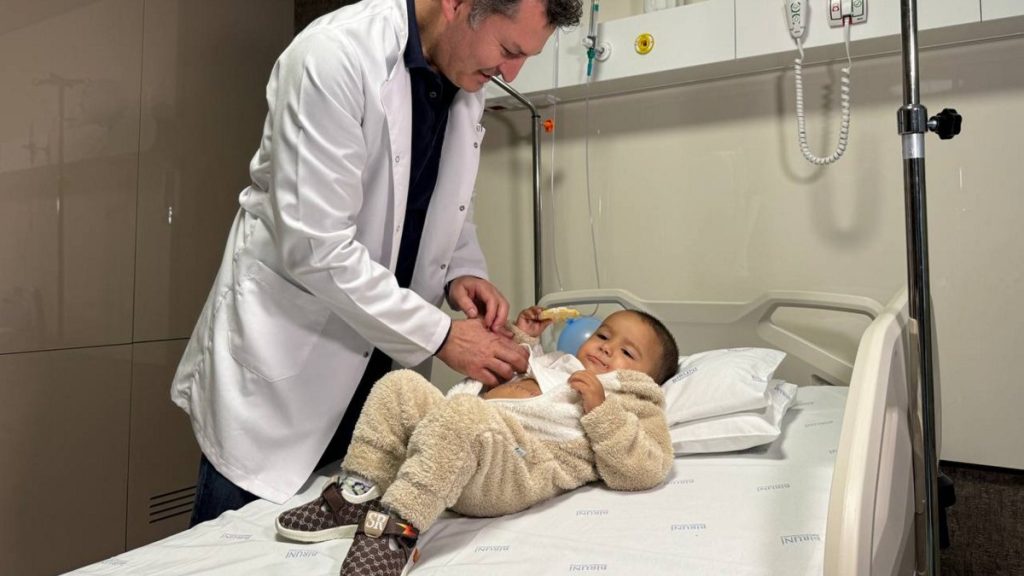A baby from Uzbekistan, diagnosed with a metabolic disease that could lead to liver failure, regained health after receiving a liver transplant from his mother in Istanbul.
Bilolbek Absayidov, a 2-year-old from Uzbekistan, was diagnosed last year with a metabolic disease that could cause liver failure. Doctors decided that a liver transplant was necessary for Bilolbek, whose liver was larger than normal.
Due to insufficient medical facilities in their home country, Bilolbek’s parents, Choriyorova Dilafruz and Oybek Begmatov, traveled to Türkiye for the transplant.
The family approached Biruni University Hospital in Istanbul, where they provided blood samples for testing. Based on the results, it was decided that a lobe from Choriyorova Dilafruz’s liver would be transplanted into her son.
Thanks to the successful operation performed by associate professor Halil Erbiş and his team at the hospital’s Organ Transplant Center, Bilolbek regained his health.
After being discharged, the mother, Choriyorova Dilafruz, shared her struggles during the challenging period with AA reporters. She explained how they were in a very bad condition when they arrived in Istanbul due to the uncertainty of the situation.
Dilafruz expressed her gratitude, saying, “Thank God, the operation at Biruni University Hospital went well. My child’s condition is good now. We are about to be discharged. We will stay here for about a month for weekly checkups. When we arrived, both my baby and I were in a bad state. Now, we are all happy, and our whole family is happy.”
Dr. Erbiş said that during their examination, they diagnosed Bilolbek with glycogen storage disease (GSD). He explained that this disease is caused by a lack of enzymes in the liver, adding, “The patient also had an enlarged liver; the disease was genetic, and there is no medication for it. The treatment must involve replacing the sick liver with a healthy one. To confirm the diagnosis, we took a biopsy from the liver and tested it. We researched the suitability of the mother and father. Their blood types matched, and we decided that a small piece from the mother’s liver would be enough.”
He also noted that surgeries on children and babies are more difficult. “The blood vessels are much smaller and thinner. Connecting these vessels is technically challenging, but we can perform these surgeries thanks to special equipment and magnifiers; the surgery went very well. After taking a liver piece from the mother, we did not encounter any problems or organ rejection.”
Dr. Erbiş explained that the patient stayed in the hospital for about a month after the surgery and they remained in constant contact after discharge.
Dr. Erbiş also spoke about the significance of organ donation, saying, “In our country, we perform many living donor organ transplants. However, the ideal practice, which is internationally accepted, is that organ transplants should be done more from cadavers. This happens when the family of a person who has been brain-dead donates the organs. Today, none of us may need an organ, but tomorrow, we might need a liver, a kidney or a heart. Therefore, we should think about the possibility of needing an organ every day and advise our loved ones to donate our organs after death.”


